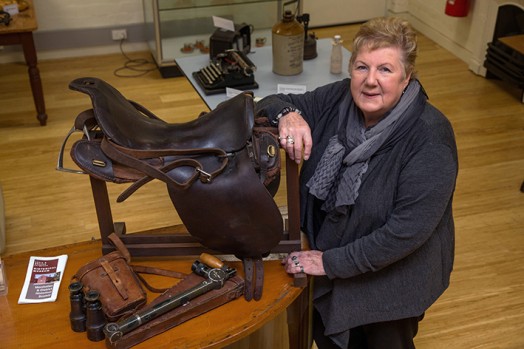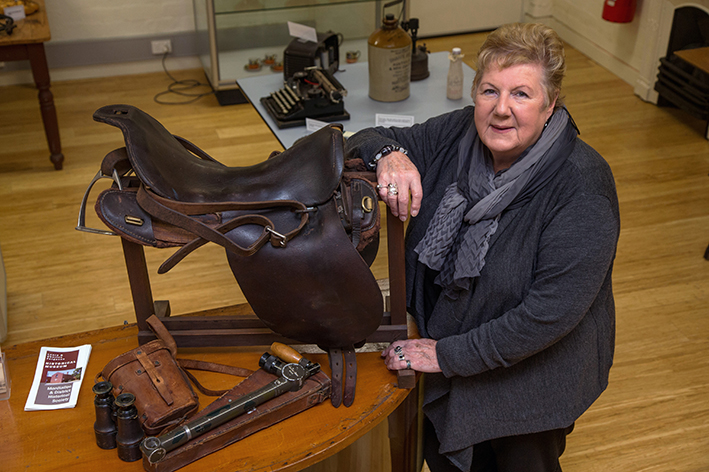
FROM little things big things grow – and that’s what history buffs at the Kingston Historical Network hope will happen to their fledgling World War I memorabilia display.
The group is putting together an exhibition of items to commemorate the 100th anniversary of the Great War, which began in August 1914.
Residents are asked to fossick through their memorabilia and to loan the museum for display any items handed down by loved ones over the years.
Of special interest would be tactile objects made by the troops in the trenches while waiting to go into battle, said curator Dorothy Booth, of Mentone. “They used to make items from bully beef tins, such as little toys for their children, or trinkets to send home. Or they made gaiters and caps.”
She said “anything tactile or three dimensional” would be especially welcome, such as diaries, cigarette cases, compasses or clothing, but that they already had an extensive collection of photographs.
So far, the museum has been “thrilled” to receive a saddle with a wooden frame, a pair of field glasses and a trench scope designed for watching the enemy without the soldier needing to lift his head up above the trench – and almost certain death.
Ms Booth asked for items to be delivered to the Mentone Museum by 25 July so they could be arranged for the display. Although scheduled to open on 6 August, that date is in doubt because of funding delays (See ‘Clogged grants process’, below).
The month-long exhibition will be open daily at the Charles Ferguson Museum in Old Bakery Lane, off Brindisi St, Mentone.
Those with items to display should call Ms Booth on 0417 997 712.
‘Clogged’ grants process may delay day of display
A FLOOD of applications for First World War centenary celebration grants has clogged the system, jeopardised the opening date of the Mentone Museum’s memorabilia exhibition.
Kingston Historical Network coordinator Graham Whitehead said $6000 from the Minister for Veterans’ Affairs to pay for catalogues had not yet been received, meaning the anticipated 6 August opening date of the display was in jeopardy.
The date is important as it is the 100th anniversary of the beginning of the Great War.
The printing of the 2500 catalogues – whose design has already been finalised and approved – is expected to take three weeks, so time is of the essence. They will be handed out to visitors to the museum – many of them school children who will use the information to complement their studies of the war.
“The catalogues will have more than just pictures,” Mr Whitehead said. “They are a comprehensive account of the era with information on local people whose family members went off to war.”
But now, with the minister “swamped’ by grant applications, it appears the process has been slowed down a little. “It looks like we will have to defer,” Mr Whitehead said.
“We are still going to open, but we may have lost that ‘punch’ because it may not be on the anniversary of the starting date of the war.”

